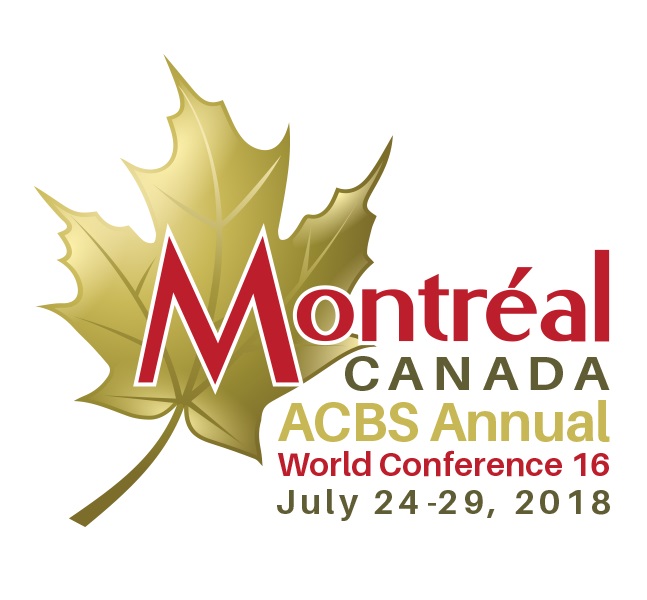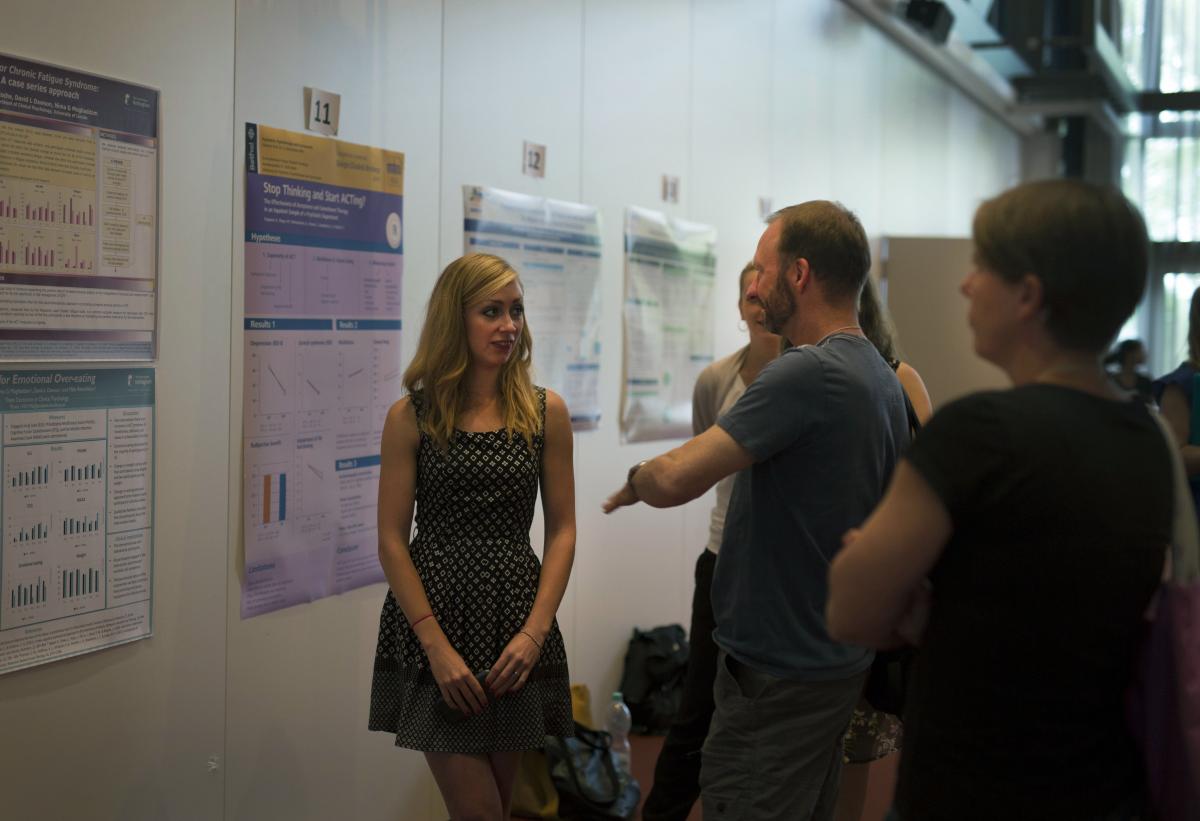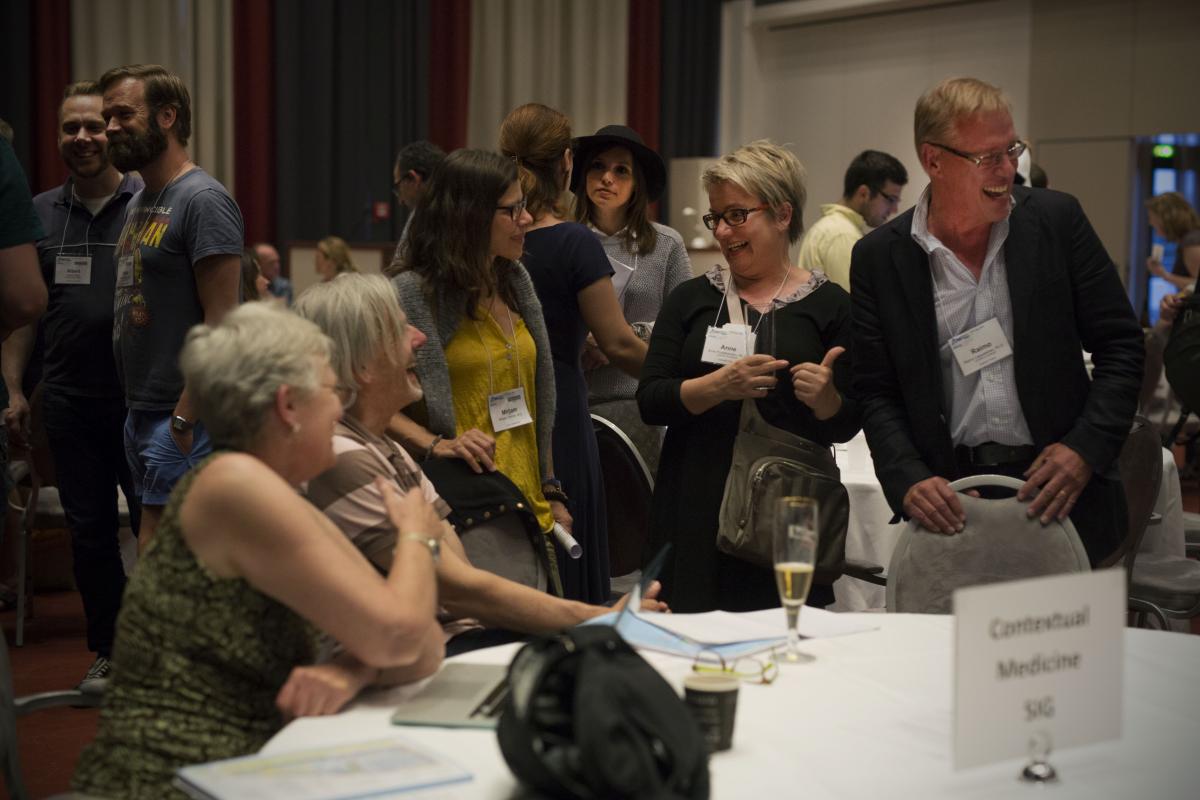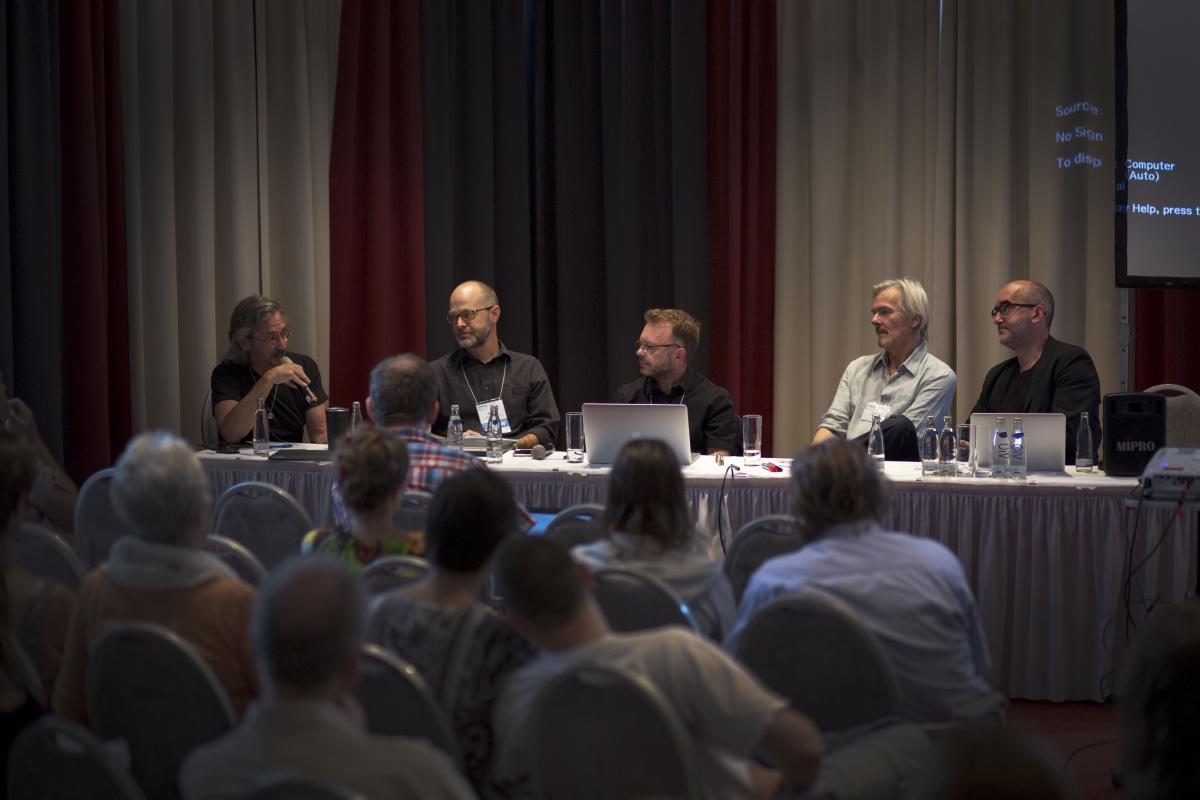ACBS World Conference 16, July 26-29, 2018, Montréal, Canada
Nous acceptons les présentations pour les conférences. Les présentations sont acceptées en anglais ou en français.
Click to jump to submission types (below)
Thriving
I came across the term thriving for the very first time in my life when I read it in the title of Louise Hayes’ and Joseph Ciarrochi’s book. As a non English-speaker I started relating it to other known words to give it a meaning. And while reticulating and shifting from Italian to English and vice versa I noticed that there was no unique way to relate the term to a specific Italian word. So you need a number of terms, a network of relations, at least in Italian, to fully understand it. And because of this I fell in love with the concept (and with the book too…. I’m biased, I know) and the following is the network that emerged for me in the context of ACBS.
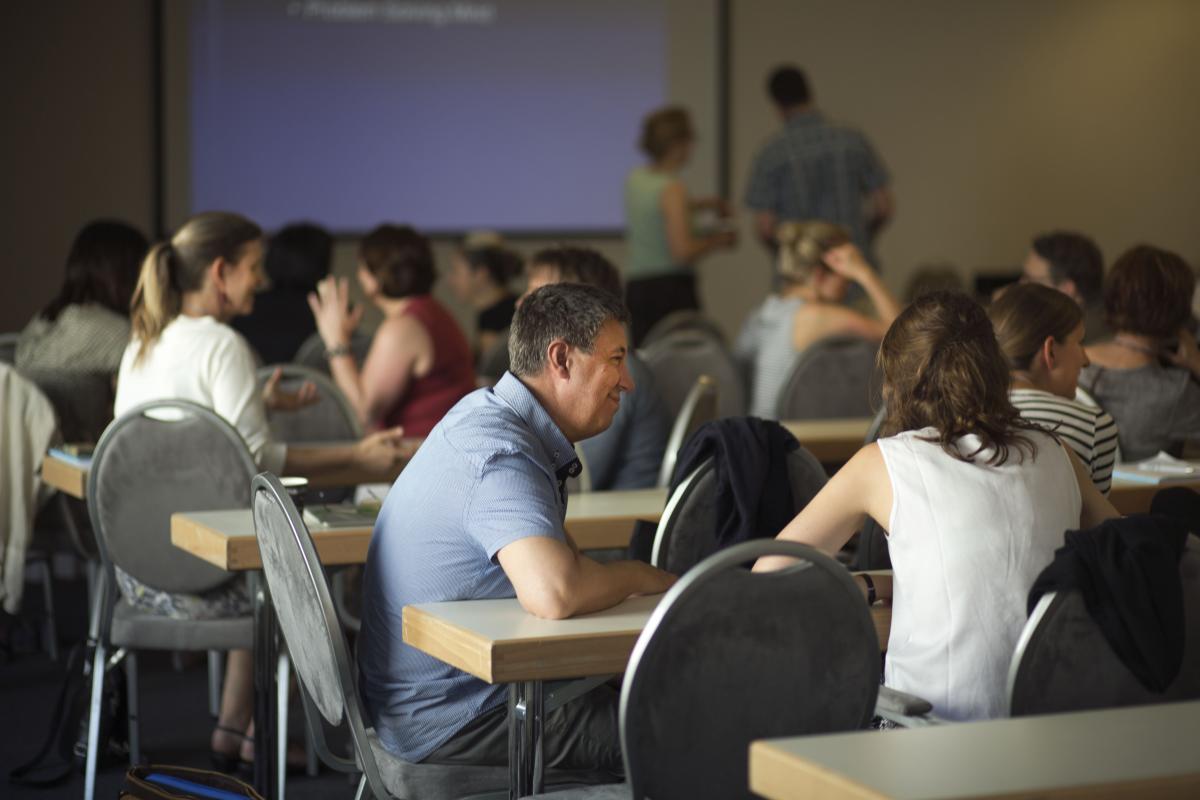
So I encourage you to add your own personal vision of what “Thriving is about…” and bring your personal contribution to the ACBS conference in Montréal in July 2018. Please share this invitation with anyone who might be interested. We have great invited speakers, researchers, clinicians, professionals, and practitioners from many fields whose ideas are the perfect yeast for a growing community. Did I mention there is no thriving without sharing?
-Nanni Presti, ACBS Board President
RFT Track:
At this year’s conference, an RFT Track will be organized for submissions of RFT data, as well as conceptual and clinically-relevant submissions to address the needs of those interested in RFT across experience levels. Learn more about the RFT Track here.
Oral submission deadline: February 15, 2018. (Results of oral submissions will be emailed out in the last week of March or the first week of April, 2018).
Poster and Chapter/SIG meeting deadline: March 20, 2018. (Results of poster submissions will be emailed out in the first half of April, 2018).
If you have any problems submitting, please contact [email protected]
Nous acceptons les présentations pour la conférence en français ici.
Poster
Posters usually report empirical research and will be organized into one or more sessions, during which attendees will be invited to review the research presented and discuss findings with poster presenters. Presenters must be at their poster during their assigned time of the poster session and may choose to provide handouts. (Poster size: no larger than 36 inches tall by 48 inches wide, or A0 size (a vertical or horizontal poster is fine). Smaller is also permitted.)
Chapter/SIG/Committee Meeting
This gives Chapters/SIGs/Committees (or forming chapters and sigs) the opportunity to reserve a space and time to get together and plan, meet, socialize, etc. This form allows you to request space before or during the conference day (early morning, during the conference, during lunch, etc.)
IGNITE
The Ignite presentation is a short, structured talk in which presenters present on ideas and issues they are most passionate about using a “deck” of 20 slides that auto-advance every 15 seconds (no exceptions). Exactly 5 minutes total. Topics may be empirical, conceptual, philosophical, historical, or methodological. Presentation should be well-practiced and high energy (perhaps even... fun!).
For more on Ignite presentations, see:
http://www.speakerconfessions.com/2009/06/how-to-give-a-great-ignite-talk/
Panel Discussion
Panel discussions consist of 3 to 5 speakers selected for some shared interest or expertise in an area. Panelists respond to one or more questions or issues, with time allotted for interaction among the speakers and with the audience. A panel discussion is organized by a chairperson who serves as the session’s moderator.
Symposia (chair, 3 papers and a discussant)
Organized by a chairperson who moderates the 75-90 minute session, symposia are a series of three 15-20 minute presentations focused on either empirical research or conceptual, philosophical, historical, or methodological issues. A discussant highlights and integrates the contributions of various speakers in the symposium and moderates questions from the audience. Chairpersons are encouraged to use symposia as an opportunity to integrate related work by: 1) bringing speakers of different affiliations together rather than showcasing the work of a single group and 2) incorporating different kinds of talks (e.g., historical, conceptual, and research-based) on the same topic into one symposium. Papers from submissions that are not accepted may be considered for a poster session. This year, we are prioritizing submissions that are research and data driven. In service of being more data aware, we encourage you to include research citations (data citations) with your proposal. The Program Committee will not split apart symposia that are submitted together.
Paper (not part of a pre-arranged symposium)
Paper submissions are individual, oral presentations, usually concerned with conceptual, philosophical, historical, or methodological issues. A paper submission may report empirical research if it is too complex for effective presentation in a poster (e.g., an integrated series of experiments). Otherwise, most data-based and single-study paper submissions will be accepted as poster presentations. All paper presentations will be 15-20 minutes long. Accepted submissions will be organized into paper sessions of 75 or 90 minutes. Submissions not accepted will be considered for a poster session. We are prioritizing submissions that are research and data driven. In service of being more data aware, we encourage you to include research citations (data citations) with your proposal.
Workshop
Workshops are training sessions of 1.25/1.5 or 2.75 hours and usually focus on a combination of experiential and/or didactic exercises. Workshop submissions are highly competitive (note: based on past events, the acceptance rate for workshops is approximately 60-70%, and of workshops submitted only 7% receive 2.75 hours slots). Please put your best workshop/abstract forward keeping this in mind when determining your desired length. Keep in mind as well that most workshops selected are for the 1.25/1.5 hour slots. Be sure to clearly state your goals and objectives for participant education in your submissions. Workshops should be regarded as opportunities to directly train specific skills rather than to present research findings, discuss conceptual, philosophical, or methodological issues, or share opinions. However, in service of being more data aware, we encourage you to include research and data citations supporting your topic with your proposal, and to briefly present these (1-2 slides) during your workshop. Submissions that are not clearly focused on training should be submitted for other formats.
Plenary/ Invited Address (use only if instructed)

